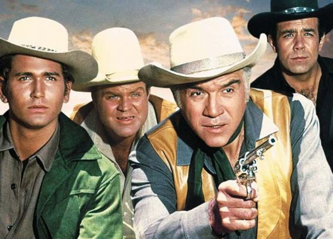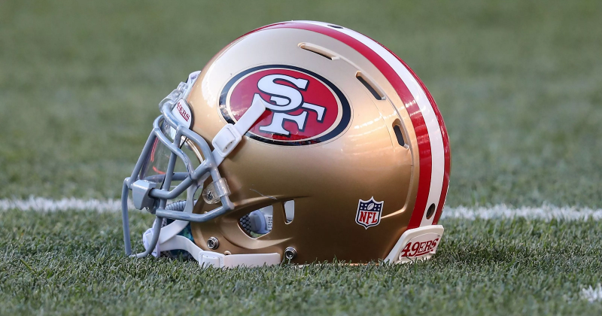
TL;DR: Staring down the Barrel of the data/information “gold-rush”
Data is not the new oil - but it’s close. Data are the reservoirs that hold the most valuable, renewable resource humans ever harnessed - information and insight. Our focus should transcend capturing data or even analyzing it - that is being done impressively already. Our focus should be on providing easy access to those data fields. In this article, I claim that every time humans found a new resource, the people that won big were the ones that controlled the access to the resource (not the miners). I also think that with blockchain, we have the opportunity to make data and information accessible to everyone and in turn have both “miners” and the access gate-keepers win together.
I also mention a chicken with lips...
“It’s the Access, Stupid!”
Human civilization is a story of harnessing resources. Land and territory are as old as the tribe. The first stone tools are 2.7 million years old. The first metals were tamed around 9000 years ago. The people who controlled these resources rose to power. Information was harnessed a lot earlier than we might think. In Mesopotamia 5000 years ago, priests who meticulously recorded the night sky were able to predict the movements of the heavens and whisper at the ears of god-like rulers. Oil, gold, transportation, electricity, the combustion engine, every time a new resource was discovered, a race of brave people looking to get there first and mine it commenced.
Really?
Are the notable rulers of human civilization, the miners?
Here’s another TL;DR - The ones that lead the rush are those best positioned to control the access to that resource, and that way the resource itself.
Data - it ain’t no goddamn oil, but it sure is handy if you can Barrel it
There are many noteworthy people who said that data is the new oil - this is a good review of these quotes. The key problem with this metaphor is that it confuses the resource with its potential to deliver value. Clive Humby, the first to use this metaphor also said “[data] if unrefined it cannot really be used.” In a way, he was right on the money. Usability is the key.
Let’s start with some basic taxonomy:
- Data - mostly bits, numbers, signal representations - without context or semantics. Data in its raw form is meaningless. For example, 0.78.
- Information - data that has been interpreted, in the sense that it has been given context and meaning. For example, 78% chance of it raining tomorrow.
- Valuable Insight - the derivative conclusion that can be deduced from the information. For example, it’s not a good idea to have an origami festival in an unroofed venue tomorrow.
Unusable data is as useful as lips on a chicken

All data can be transformed into information and some of it will yield valuable insight. The problem is that most data is unusable because it is restricted.
Restrictions can stem from privacy protecting regulation, or from corporate ineptitude (not knowing how to turn it into information, not realizing its true potential, and not sharing it with others). Complying with regulation is doable. Inaptitude is rarely curable (as luck would have it, the survival rate of myopic and inapt corporations is falling fast).
Unusable data is like the geological structures that capture oil or gas - it is the tar sands or oil reservoirs. By itself, it ain’t much good to anyone.
If you can gain access to that reservoir and extract the oil that is in it, i.e., analyze the data and transform it into information, you’ve got yourself a Bonanza (my apologies for mixing my geological metaphors).

If you can refine it further and farther downstream, you can yield the coveted value-generating insights. In fact, the farther downstream it reaches, the more agents will process it and the more applications and value it will generate.
In this, apt, I hope, metaphor, data are the oil fields, information is oil and insights are the rocket fuel we use to get to freakin’ Mars.
You catch my drift?
When looking at everything happening around us, I suggest we should look for the people and organizations that make it possible or easier to extract it, processes it and trade it.
I’m going to mention one such venture, by a company called Superfly Insights - the Barrel Protocol.
[Disclaimer: The founder of Superfly and Barrel, Jonathan Meiri is a good friend. We talked about Barrel a few times (and we don’t always see eye to eye). To be clear, this is not a commissioned PR piece.]
Barrel is a serious attempt to clean the data, package it and make it transactable so that it can be transformed into information. They could have just as well be named, Drilling Pipe. Still, I like the name Barrel. Will Barrel make Superfly the Standard Oil of our time? Perhaps.
[I hope not. I think that we, the data producers, are stronger today and in a better position to negotiate for our rights - still, there’s enough value for everyone.]
“It sounds complicated”
A few years ago, I helped the 13-year-old daughter of a friend to prep for a math test. The topic was fractions and percentages. As a kid, I many times could not follow the method my teacher taught and had to develop my own “shortcuts”. I spent an hour with (let’s call her) Anne. A week later her dad came to me and asked - “What did you do??” Apparently, she aced the test. I said: Nothing really. I just took away her fear. I taught her a simple trick that gave her the solution right away, and once she knew what the end result had to be, all she had to do was to “connect the dots”. My point and this is fairly common insight, is that fear is the main, if not the only, barrier to learning. The best students I taught weren’t the smartest. They were the most fearless. This, seemingly insignificant insight, is the prime mover of many sociological phenomena and especially in the diffusion of innovation.
The classic diffusion of innovation model segments the market into the innovators and the early adopters that make up the early market. The Innovators are people who are attracted to trying new things and are not price sensitive. I would say they are fearless. When they come across something that they have never seen before, something new, they are not afraid. They assume they will understand it and be able to use it and enjoy it. Their basic assumption is that learning, in the sense of assimilating new knowledge, will not be a barrier. And so, they try. Most of us are not like that. Most of us are driven by a spectrum of fears and anxieties. When we come across something new, we fear we won’t get it, or that it would take too much effort, or that we will be disappointed. This is the source of the expression “If it ain’t broke, why fix it?” Life is easier if we keep change to a minimum. I spent most of my career working with very capable and smart executives, in some of the largest companies in the world, on generating innovation pipelines and I can tell you that close to 100% of them had some resistance toward new ideas (no matter how open and creative they claimed to be). My main job was to slowly remove fear barriers and lead them toward exploring the integration of new ideas and concepts into their reality. I failed more than I succeeded.
After 20 years as the “innovation guy”, I can say this: Learning is the process of transforming what, we fear, is (too) complicated into what we know (is simple).
[how the hell is this related to what you wrote in the TL;DR??? Patience - We’ll get there. I have a plan]
Samuel Brannan get’s rich
This inherent fear of the “new” can be found in multiple industries and historical milestones in human progress. Let’s look at one.

On January 24th, 1848, James Marshall found a small piece of gold at Sutter's Mill, near Coloma, California. By March rumors reached San Francisco. By August the news reached New York. In 1849, miners from all over the world made their way to the region. [They were named "the forty-niners” - which is the origin of that famous American Football team.] By 1850, the tiny city of San Francisco grew from 1000 residents to 25,000. This is even more impressive when you consider that there were 3 hellish ways of getting to San Francisco. You could sail for 6-8 months around South America, covering 18,000 nautical miles. You could “cut” through Panama (remember this is before the canal was dug) and travel through the jungle to the west side and then wait for a ship sailing to San Francisco. You could go by land, through Mexico. All three routes were long, hard and many times deadly.
Ok, so they endured hardship, but at least they got rich, right? Well, about 50% of the miners made modest profits (when considering their expenses). Very few of the miners got rich. The richest man of the California gold rush was without a doubt, Samuel Brannan. He opened the first supply stores in Sacramento, Coloma, and other spots in the goldfields. Just as the rush began he purchased all the prospecting supplies available in San Francisco and re-sold them at a substantial profit.
Now you remember where you’ve heard this before. I am not the first to tell this story. When there a “rush” the people that make the real money are the ones that provide the infrastructure. No! No! It’s the service providers that win. No, it’s the people who trade the commodity itself - the brokers and traders. You are all right. Let’s take this story one step farther.
Providing tools and removing barriers IS access
The flat gold pan, the Levi’s Jeans, the traders who bought the gold and sold it, the ships, the providers of guns used to take-over land - all of them got very rich. Far richer than most miners. All of them provided access in the broader sense of that word. They sold the tools that made extraction possible. They removed liquidity barriers and made it possible for people to trade. They brought the people and tools and commodities required to support the Gold Rush. They, together, provided access.
But, why do we need them?
The 49ers never had them.
The first people to ever discover and harness a new resource, they had no one to help them, to remove barriers, to provide the coveted access. So why can’t it always be like that?
Here’s why. It is because we are naturally inclined to avoid dealing with new things. Everyone wanted to get some of that gold - it was a strong motivator. But, they also feared the unknown and the new. This is even truer today (although less dangerous). The natural resource of our time is information (hidden in growing data “fields”). Data related technologies sound complicated. Even for the tech savvy, we are tired of learning new things. It’s gonna take so much effort. We hate updating our operating system, for fear that we will need to assimilate new features or for fear that the menu will look different. We are in the middle of a data/Information-rush and we need people and organizations to package it and make it easier to work with, to trade to transact. Don’t give me a two year long Big Data IT integration project - I feel nauseous just thinking about it. Don’t run me through regulatory Via Dolorosa of GDPR. Just give me the data, that I can use, now. I am not the pioneer. I am not one of the 49ers. I am a corporate user and I need the insight - chew it for me please and let me drive ahead.
The Barrel protocol
The first time I heard about the Barrel Protocol was a few months ago when Jonathan told me about it over a lazy Friday afternoon coffee in downtown Tel Aviv. It didn’t take long for me to get it. It made sense to me then, as I hope, it does to you now. If we could offer sources of data to share it in a decentralized peer-to-peer network, say blockchain, and use the “miners” to verify that it is compliant with regulatory restrictions (properly anonymized and secured and a bunch of other Techese and Legalese speak), we would effectively create the “barrels” or the “pipeline” that would provide access to multiple players all over the world and across multiple industries to the information captured in the data.
What's next?
Who's gonna extract the information, no the valuable insights from this data? Well, we would like to think that it’s the smart people all over the world. The truth is, and I will write another piece on that, is that we have created a breed of data-eating, insight spewing machines - The age of AI. We’re gonna need a lot of barrels to feel these insatiable machines.
For those of you who survived this, probably too long, piece, perhaps you'de be interested in these:
So much data,
🍄
Up voted
You mean information :)